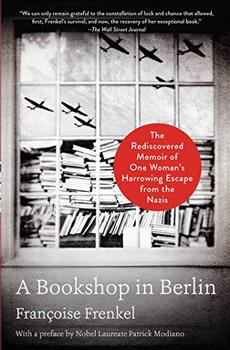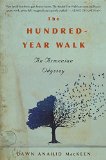Summary | Excerpt | Reviews | Beyond the book | Read-Alikes | Genres & Themes | Author Bio

A Young Girl's Account of Life in a Concentration Camp
by Helga WeissThe remarkable diary of a young girl who survived the Holocaust—appearing in English for the first time.
In 1939, Helga Weiss was a young Jewish schoolgirl in Prague. Along with some 45,000 Jews living in the city, Helga's family endured the first wave of the Nazi invasion: her father was denied work; she was forbidden from attending regular school. As Helga witnessed the increasing Nazi brutality, she began documenting her experiences in a diary.
In 1941, Helga and her parents were sent to the concentration camp of Terezín. There, Helga continued to write with astonishing insight about her daily life: the squalid living quarters, the cruel rationing of food, and the executions—as well as the moments of joy and hope that persisted in even the worst conditions.
In 1944, Helga and her family were sent to Auschwitz. Before she left, Helga's uncle, who worked in the Terezín records department, hid her diary and drawings in a brick wall. Miraculously, he was able to reclaim them for her after the war.
Of the 15,000 children brought to Terezín and later deported to Auschwitz, only 100 survived. Helga was one of them. Reconstructed from her original notebooks, the diary is presented here in its entirety. With an introduction by Francine Prose, a revealing interview between translator Neil Bermel and Helga, and the artwork Helga made during her time at Terezín, Helga's Diary stands as a vivid and utterly unique historical document.
In 2011, Neil Bermel, translator of Helga's Diary: A Young Girl's Account of Life in a Concentration Camp, asked Helga Weiss, ”What would you say is the contribution of your diary? Why should we read another account of the Holocaust?”
Helga answered, ”Mostly because it is truthful.”
That is at the heart of this significant and moving contribution to the literature of the Holocaust...continued
Full Review
 (1097 words)
(1097 words)
(Reviewed by Bob Sauerbrey).
Helga's Diary is an important book because it protects the truth of our human
past, and truth has often been in danger. "In war, truth is the first casualty." Any great conflict brings us to the same confrontation with distortion, lies, and historical reconstruction.
 In 2000, a libel trial took place in Great Britain. David Irving, a prolific British writer on history, sued Dr. Deborah Lipstadt of Emory University for defaming his reputation. Dr. Lipstadt had identified Irving in her 1993 book, Denying the Holocaust: The Growing Assault on Truth and Memory, as a 'dangerous spokesperson' for Holocaust denial. If the trial had taken place in the United States, Irving would have needed to prove the falsity of Lipstadt's charge; in ...
In 2000, a libel trial took place in Great Britain. David Irving, a prolific British writer on history, sued Dr. Deborah Lipstadt of Emory University for defaming his reputation. Dr. Lipstadt had identified Irving in her 1993 book, Denying the Holocaust: The Growing Assault on Truth and Memory, as a 'dangerous spokesperson' for Holocaust denial. If the trial had taken place in the United States, Irving would have needed to prove the falsity of Lipstadt's charge; in ...

If you liked Helga's Diary, try these:

by Francoise Frenkel
Published 2020
"A beautiful and important book" (The Independent) in the tradition of rediscovered works like Suite Française and The Nazi Officer's Wife, the prize-winning memoir of a fearless Jewish bookseller on a harrowing fight for survival across Nazi-occupied Europe.

by Dawn Anahid MacKeen
Published 2017
An epic tale of one man's courage in the face of genocide and his granddaughter's quest to tell his story.
Who dares to teach must never cease to learn.
Click Here to find out who said this, as well as discovering other famous literary quotes!